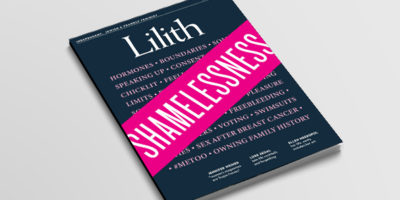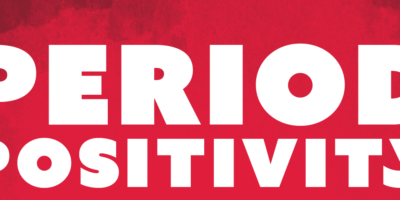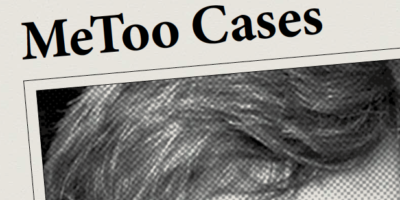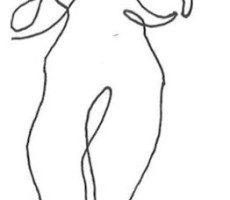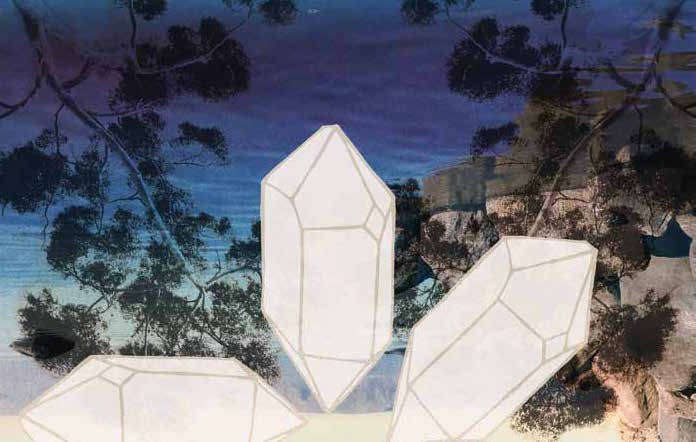
Fiction: Diamonds and Ashes
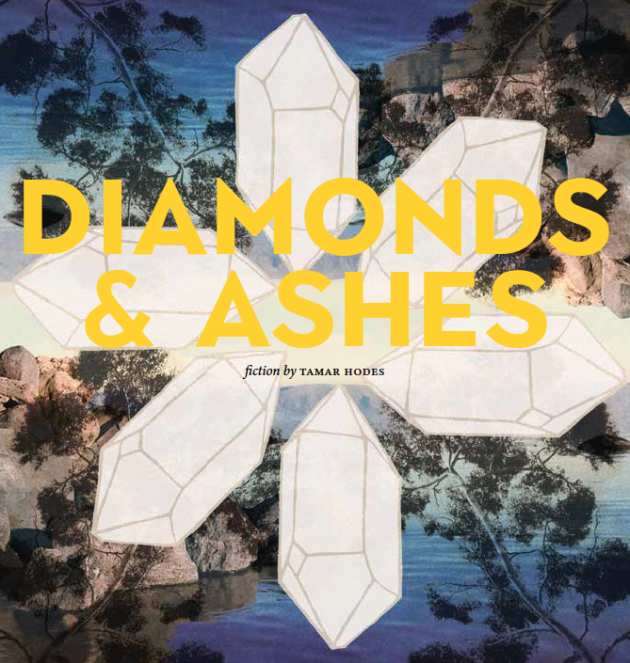
The water is a silk sari, pleating, unraveling beneath us, falling away. Eucalyptus trees blink in the morning sunlight. I am on a boat on the Sea of Galilee, with my aunts Esther and Hannah. With their short dark hair and stocky figures, they make it hard for me to believe that they are—were—my mother’s older sisters.
“Can you believe this is what he tells me?” Aunt Esther gestures at the older of the crew members. The men wear black t-shirts emblazoned Holyland Sailing. “He says last year a group of billionaires are coming from Texas with the ashes of their loved ones. They mixed them with, how you say? yaholamim.”
“Diamonds,” Aunt Hannah helps out. Like her sister, she has a strong Israeli accent.
“Yes, diamonds, and they throw them in the water.”
“So they are used to it, even though it is not so Jewish. People scattering ashes.”
“Really?” I ask. “Are these stories true?”
I shake my head in amazement. Tucked under my arm is the box labeled Rose Williams: Cremated Remains. Hudson and Son, Bath.
“Of course,” says Aunt Esther. “By the way, your mother’s name was Shoshana Ullmann. We never called her Rose.” History hangs in the air between us, my aunts’ skin darker than my mother’s as if 40 years of disappointing English summers had drained her of any color. She was also slimmer than her sisters, and more reserved.
For two weeks in Israel, my head has been spinning with questions. Why did my mother leave Israel when she was twenty- one? Why did she never return? Why did she distance herself from her parents? Why did she anglicize her name and deny her Judaism? Why did she make a monthly payment to her sisters? And most curiously of all, why did she request her ashes to be scattered on a lake she never visited?
My aunts have introduced me to so many cousins that I have struggled to remember which children and grandchildren belong to which aunt. I have been conscious that my white skin and cautious demeanor must seem as alien to them as their effusiveness appears to me. Now that both sisters live again in the family home, Esther (widowed) and Hannah (divorced) fill their days with family. They eat at a large dining table, served by their Arab maid Mimi, who limps slightly as she carries plates of food in. I am intrigued by her.
Mimi looks like a woman in her twenties, dark hair twisted into a bun, her nearly black eyes downcast, her brown skin smooth. Beautiful and silent. The aunts thank her for her service, but she does not reply, just nods her head slightly in response.
Wrapped around this stone house in Herzylia like a sash, the garden bursts with mangoes, pomegranates gleaming red; passionfruit and guavas concealing their moisture beneath rough skins. Banana trees with wide leaves; palms with golden dates stored high like jewels; olive trees fluttering their silver foliage and a single rose bush, its pink flowers blushing at their incongruity in this exotic terrain.
‘We grow this for your mother,’ says Aunt Esther as she shows me their garden. Aunt Hannah walks silently on.
The days spent with them have been filled with love and warmth but I have sensed that they are holding something back. We have eaten many meals together in their pleasant home: books straight on the shelves; fruit in wooden bowls; framed black-and-white photos, including one of my teenaged mother and her sisters, Mum in a short skirt and beaming surprisingly broadly. In her later work as an administrator in the hospital, she always looked smart, her skirt below her knees, her shoes flat, nothing Mediterranean about her apart from the slight Israeli accent she could not lose. Her dark hair and eyes often led to questions she just waved away with the reply: ‘I was born in Israel but left many years ago. England’s my home now.’
My aunts have opened my eyes to Israel: Jaffa, its yellow stone and bobbing boats in the Mediterranean; Tel Aviv, its busyness and sophistication a surprise to me; Ashdod, a new city gleaming with pride in the white light; Haifa, its harbor spread below us like a feast; Jerusalem, where I laid my hands on the hot, golden Western Wall; and the Druze market where I bought my father a silver coffee pot with tiny espresso cups on a matching tray.
But with all the pleasures has been a tension. Not only the soldiers carrying guns and security at every mall and train station. Not only the stories of Orthodox spitting at secular girls because of their immodest dress. Not only the way that Israelis are overtly political in a way that the British are not. My aunts scan the papers daily for news. One day while I am there the headlines tell of an Orthodox Jewish man who has stabbed a young woman in a gay pride parade in Jerusalem. A Palestinian family with a baby daughter is burned alive in their own home. Jews and Arabs live their lives against a backdrop of fear.
The tension has been closer to home, too. Hannah and Esther have been constantly bickering, slipping into Hebrew to do so, excluding me from the conversation, glancing in my direction and then looking away. They return to English when they are calmer, and I am included again.
“What kind of studies you are doing, Claire?”
“I’ve started a Ph.D. at Bath University.”
“Near your home?”
“Yes. Near where I’m living with my father.”
“We met him when we came to England once. Do you remember we came to see you when you were still at school?”
“Yes I do.” I recall, aged 14, that my mother’s two sisters briefly entered our lives.
“What you are studying?” “I’m researching literature, culture and identity.” The next morning, Esther gives me T. Carmi’s At the Stone of Losses and his words reduce me to tears. She lends me poems by the poet Rachel, “In My Garden” and “Will you hear my voice?” She takes me to see Rachel’s grave in the Kinneret cemetery, and the single, simple name on her headstone: Rachel. I place a stone on her grave.
I have been emotional on this trip, which would surprise Hugh, his ongoing complaint about me that I don’t connect. In spite of liking him, I have been unable to commit, scared of the age gap, my 25 to his 38. Worried about what kind of mother I might be. I have felt homesick here, missing Hugh, missing my father’s soft, genial kindness, missing our English garden and cottage, the honeysuckle which curls around my bedroom window. Missing my mother, who when she passed away in September, was not fighting the cancer but letting it take her at 62, submitting to it as if she felt that she deserved it.
Ours was a quiet, understated family, my sweet doctor father with rumors of an early unsuccessful marriage before my mother, which no one really spoke about. And my mother, dutiful, always supportive of me, attending every concert and play at my girls’ school tucked genteelly away in the hills. And yet when it came to the bear hugs I witnessed other families exchanging…it didn’t happen with us. My father would pat me on the shoulder if I did well; my mother would put her arms around me but almost without touching. If I asked about her past in Israel, the details were sketchy.
“I grew up in Herzylia, a lovely house with my parents who ran a pharmacy and two older sisters. I went to the army, and then a kibbutz for voluntary work and came here to study. That’s all.”
And then she would turn away, a clear signal that she didn’t want to talk about it. When I was asked my religion at school, my mother would tell me to state “No religion,” as I was brought up with no Judaism at all. We did not light candles on Shabbat; we did not go to synagogue on the High Holy Days or any days; we did not have a Chanukiah; we did not dip apples into honey on Rosh Hashanah. I learned about these festivals in school but they remained theory, not practice. At home, we celebrated Christmas modestly, a small tree with white lights and not overly lavish presents, as if she was ashamed of celebrating a Christian festival.
I learned more about her after she died. She left me money to continue my Ph.D.; she made a bequest to the Centre for Peace Studies in Jaffa, and to the Divan orchestra. She requested a humanist funeral to include music by Louis Armstrong and Bach. And most curious of all were these lines in her will: “I would like to be cremated and for my ashes to be scattered on Lake Kinneret.”
It took me months to face sorting out her wardrobe. I put her copies of Country Life magazine in a pile for recycling. I folded her clothes—the sensible skirts, the flat shoes, the beige cardigans, the long cotton nighties and white underwear—into bags for Oxfam. All the while, I fought back tears and felt that I was handling the costumes of a young actor who plays an older character, as if she had assumed a false identity. I felt overwhelmed with regret that only after she had gone had she really come to me.
And in the darkness at the bottom of the wardrobe a wooden box inlaid with purple anemones and a bag of poems she had written. I knew she liked reading poetry, especially Keats, Shelley and the Romantics but I did not know that she wrote it herself. I read her words:
Once we walked at the lake’s edge,
Purple anemones tucked in our hair
And there my dust will settle.
I am the lake. I am the fish.
I am the leaves that float.
I am a part of whatever grows.
There is no other eternity that I desire.
Even seeing the word desire shocked me. My mother, who never expressed her wishes and did not seem to demand anything, not even a biscuit to go with her tea.
I phone my father a few times. I keep in touch with Hugh, whose replies to my emails are always warmer than mine to his. Something restrains me. Would it be right to open myself like a book at its center? To let him completely in?
I think of the times we have had, watching the swans puff themselves up on the river; the meals in our favorite trattoria; the nights where I have opened myself physically to him even while emotionally I have been closed.
On the boat, the men have taken us to the centre of the lake where no shoreline is now visible, and have stilled the vessel. My aunts say Kaddish together, which they tell me is the mourner’s prayer. Then together we take the bag from the red box, our hands overlapping, and scatter Mum’s ashes on the water. They remain on the surface for an instant, then dissolve and vanish.
The tears come fast and my aunts hug me close, so that I can feel their breasts rest on mine, in no hurry to run away. “Thank you,” I whisper. “Thank you for your kindness.”
‘She is at peace now,’ says Hannah.
I finger the locket around my neck my mother gave me, her tiny photo trapped inside. I wonder why she asked to be scattered on this lake?
Esther and Hannah exchange glances. “I want to tell you,” says Esther. “You deserve to know.”
Hannah glares at her. “Esther, remember what we agree.”
“No,” says Esther. The boat has begun to sail again and the motion seems to spur her on. “I will tell you, Claire. This is your history.”
Hannah moves to the other side of the boat, turning her back to us and staring out at the water, disapprovingly.
“Your mother,” begins Esther carefully, “was very clever at school and our abba—our father—was very proud of her. He has high hopes. After the army, she does not know what job to do so she, Shoshana, goes to the kibbutz there.” And as if on cue, the community comes into view. I can see sugar-cube houses in the distance, clinging to the hills.
“When she is there she meets a young man, an Arab, Ibrahim, from Um-el-Fachem. They fall in love. He was a carpenter for the kibbutz.”
I recall the wooden box with the anemones on its lid. “What happened then?” “Abba finds out. He is very angry.”
Hannah turns to stare at Esther, calls out something in Hebrew which I don’t understand. “I have said enough.”
“Please. I need to know.”
“Your mother got….” She mimes a round stomach.
“Pregnant? My mother was pregnant?”
“Yes. Abba, angry, come to the kibbutz, says Shoshana must not have the baby. Must get rid of it. Your mother said no.”
“My mother had a child before me? With Ibrahim?” I feel my heart thump in my chest and my legs quiver.
“Yes. A girl.”
“I can’t believe it. What happened to her?”
“She go to…how you say?” “An orphanage?”
“Yes. She is not well. And your mother sent away to England to study. Abba says she must not return. But the child is not happy in the home so we help out. Hannah and me.”
“What was the child called?”
Esther pauses. “Mimi,” she says.
The bottom of the boat collapses beneath my feet and I am falling through water.
“Mimi? The Arab girl who works for you?”
“She is half-Arab,” says Esther. “She helps us in the house and we support her. Your mother always sent us an allowance for her, too. She likes to draw.”
“Mimi is my sister?” I think of the dark-haired girl who stumbles into the dining room carrying a jug of water, a plate of watermelon.“Does she know her story, who her parents are?”
“No,” says Esther. “She does not.”
“But surely she is curious?”
Hannah is still staring at the water, searching for answers there.
“She is a quiet girl. She asked once who her parents were and we just said that we didn’t know. It’s easier that way, less complicated.”
The lake and land spin. There is nothing beneath me. I think of my parents, about my strong sense that they loved me, in spite of their secrets, their understated ways. It seems wrong that Mimi does not know who she really is.
We leave the boat and thank the crew. I wonder what they think of me: cheerful at the start, weeping in the middle; stunned at the end.
In a restaurant in Tiberias we order salad and fish. Porcelain dishes are brought to the table. They form a ceramic patchwork on the cloth: hummus, tahini, pickles, salads, yogurt, roast cauliflower with sunflower seeds, eggplant dip, chopped beetroot stained by its own juices.
We eat in silence, the sisters angry with each other. “Does my father know about Mimi?” I ask. The aunts shake their heads.
“I am pleased you told me,” I say quietly. “It is a shock, but now I know my mother’s history.”
On the last day of my visit, my aunts go shopping for gifts for me, but I ask to stay at the house. I have packing and washing to do.
Once they have gone, I walk through their garden to the small house where Mimi lives. I knock and wait, watching the olive leaves shift in the breeze. At last the door opens tentatively and she peers round the frame.
“Shalom. Salaam,” I say. “May I come in please, Mimi?”
She looks uncertain but she lets me in. Her home is functional: a wooden table and chairs, one settee, tiled floors, beautiful sketches on the walls. It strikes me that her home may be simple but her history is not. In the corner of the room is a chair and desk with a half-finished drawing upon it. Then I realize that the framed pencil drawings adorning the walls are by her: the serrated edges of shells; the outside and inside of tropical fruits; mountains delicately drawn. No portraits, only nature.
“These are really good,” I say, pointing to them, and although she does not comprehend the words, I am sure she understands the message.
Mimi goes to the kitchen, limping slightly and returns with juice for me. I take it, “Todah rabah,” I say and drink. I taste guavas and passionfruit, the sweetness I need.
I nod and smile. She seems pleased. We sit together on the sofa and I search her face for my mother’s likeness. The downcast eyes, the modesty, the translucent skin. Yes, my mother is there within her, and in a strange way, I feel my mother’s presence. I may have scattered her ashes but she is here with me.
I hold out my hand and take hers. I wonder whether she will resist and refuse, but to my amazement she even curls her small fingers upon my skin. I am surprised at how comfortable I am with her and she with me. Before, when I have had to hold hands with a stranger at a dance, or even when someone has brushed by me in a crowd, I have felt uncomfortable but not here. We sit like this for several minutes in silence and I feel that I could stay in this position forever, but I don’t want the aunts to come back and find me here.
I take the locket of my mother—our mother—from my neck and place it around Mimi’s. Our faces are so near I can feel her soft hair. The gold catches the light as she moves.
Mimi lifts her face and her dark eyes are, without doubt, the eyes of our mother. We half smile while I drown in those eyes.
She gives me one of her delicate sketches, mangoes and lemons. I convey my thanks with an embrace.
By the time the aunts return, I have packed. They have brought halva for my father and books of poetry for me, which I will treasure.
At the airport, I ask:
“Isn’t Mimi lonely?”
And Esther says no, she likes to be alone to draw. They use the money Sho—Rose—sent to buy her materials.
“May I carry on sending her that monthly allowance?” I ask, and they agree. “And may I visit you all again?’ They smile and we hug again.
On the airplane I notice my gently tanned skin, as if I am edging closer to Mimi. I text Hugh, “I love you. I want you,” switch off my phone and close my eyes, opening them again only when I glimpse through the small window the thin green skin covering England.
Tamar Hodes’ latest novel is The Water and the Wine (Hookline Books).

